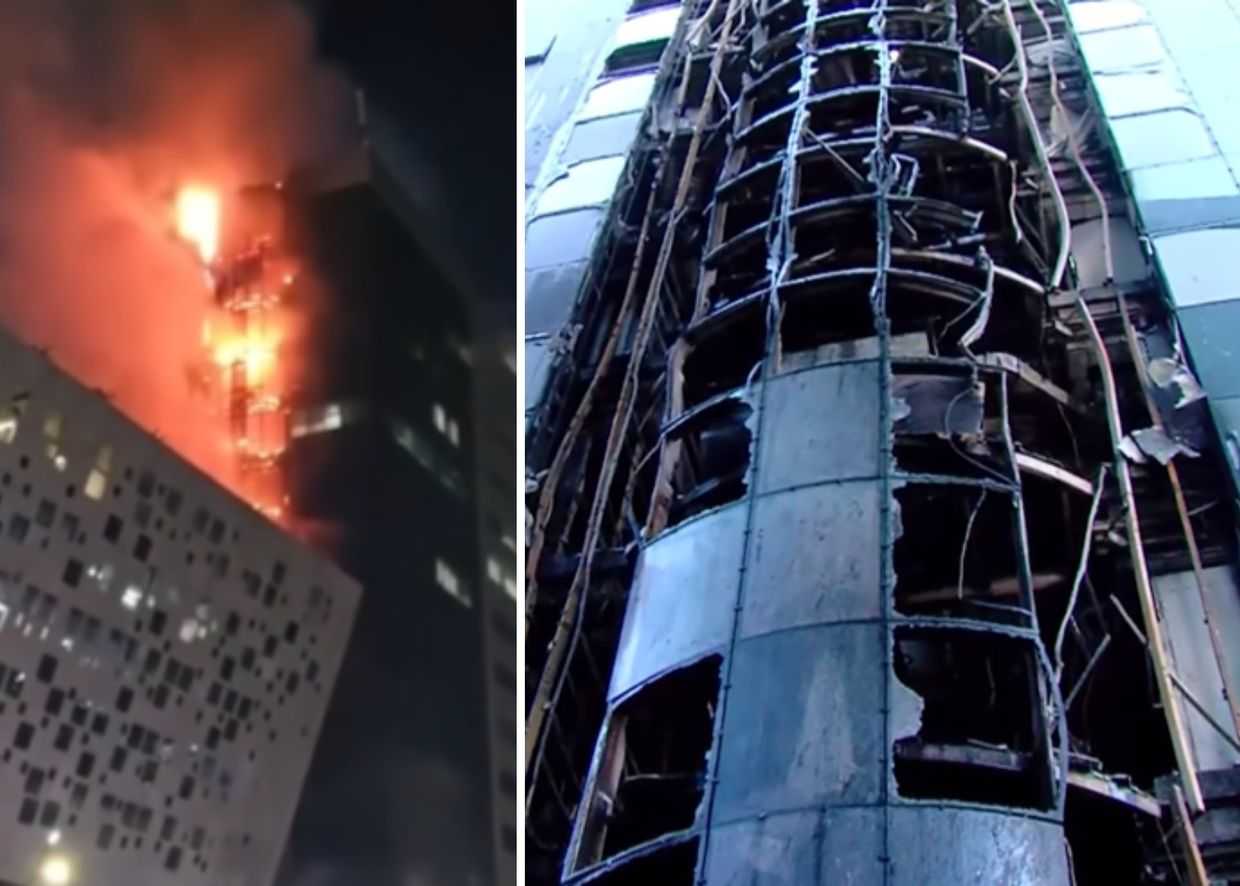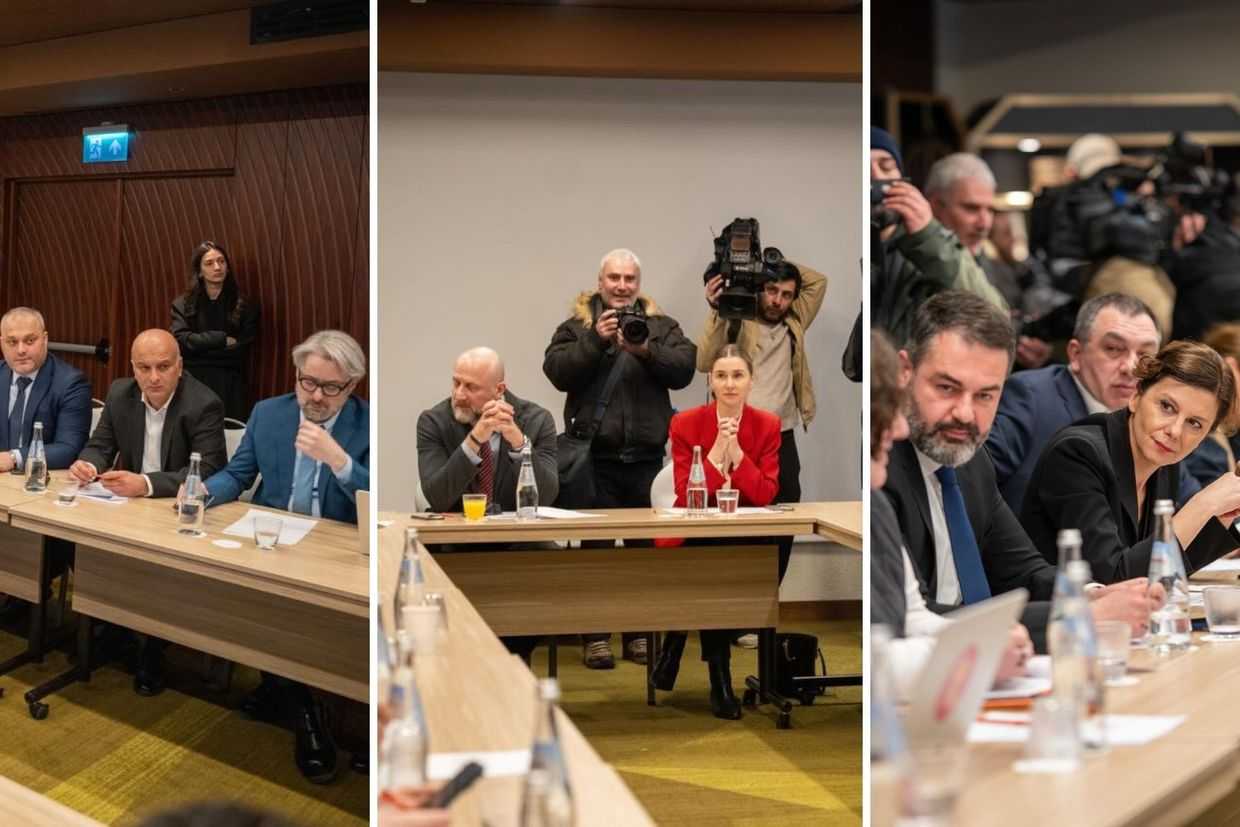
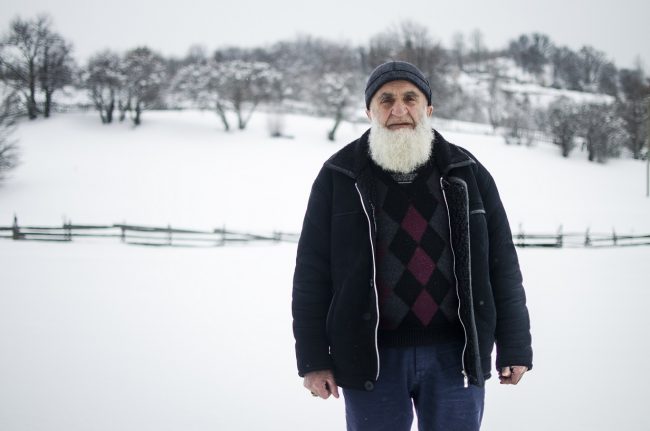
 After a dispute broke out between Christians and Muslims over the ruins of a building in the village of Mokhe, in southwest Georgia’s Adigeni Municipality, the government stepped in to resolve the situation by pledging to build a new mosque.
After a dispute broke out between Christians and Muslims over the ruins of a building in the village of Mokhe, in southwest Georgia’s Adigeni Municipality, the government stepped in to resolve the situation by pledging to build a new mosque.
The building in question, which Muslims in the village claim is a mosque but Christians believe was constructed on the ruins of a church, has been officially declared a ‘disputed building’.
The Mokhe Commission, which was created to determine the building’s origins, did not research its history. It ruled that no group had a claim on the building.
For almost two years now, Muslims in Mokhe have held prayers in front of the disputed building. Many have now moved on, to the new government-built mosque in the village. But for others, including 70-year-old Grisha Beridze, this is the second winter spent praying in front of the disputed building.
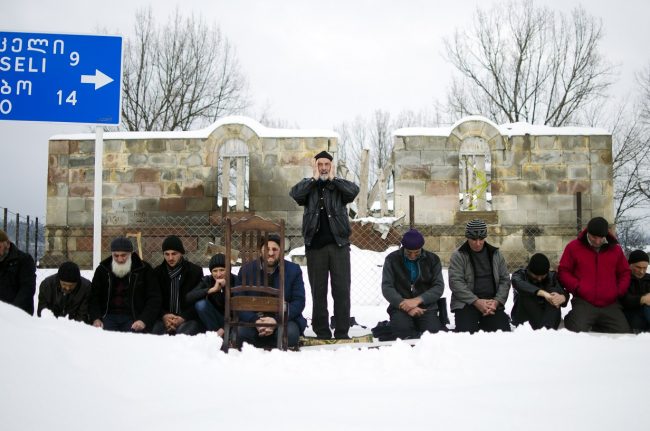
‘We couldn’t go without praying’
‘I moved to Mokhe in 1980. Back then, the village was populated mainly by Christians. We had a very good relationship with them, we were good neighbours’, Grisha tells OC Media.
‘I realised it was a jame (Mosque) as soon as I saw it. They used it as a library, a club back then. But it was communist times, there was nothing I could do about it. Neither churches nor mosques functioned back then.’
[Read more about Mokhe’s disputed building on OC Media: Mokhe’s ‘disputed building’ to be sealed off for conservation]
‘Muslims hold prayers called juma every Friday. It’s mandatory to pray in the mosque and I wanted to pray in this building. In 2000 we tried to seal it off with a fence, but Christians were against it. So we fell silent. I was heartbroken, but cautious to prevent confrontation.’
‘But we couldn’t go without praying, so we rented a house.’
‘One day [in October 2014] they came from Adigeni and started demolishing the [disputed] building. They said they’d won the tender and were going to convert the building into a club.’
‘A lot of people gathered to resist. Police from five districts came as if we had been armed. Fourteen people were arrested that day’.
As Muslims in the village awaited the commission’s decision, in October 2016, police boarded up the doors of the building to prevent people from praying inside. Police did not explain the reason, just insisted it was lawful. Meanwhile local Christian authorities said their parish were offended by Muslim prayers in the building.
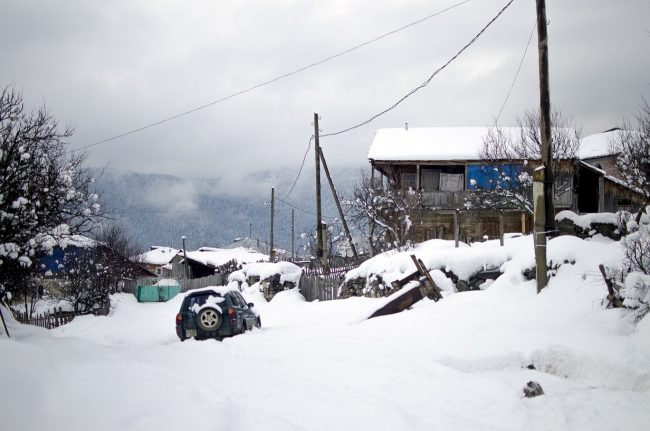
‘He threatened to break my leg’
‘Prayers must be held in a clean place, but dogs, pigs, and cows were roaming the building,’ Grisha continues. ‘We cleaned it up and held prayers inside for 3 days. But they came and forbade us from doing so. I don’t know what happened with them. They surrounded the building with yellow police tape. Crossing the line meant we could be fined. We couldn’t touch it. So we continued our prayers in the yard. And this is how we have prayed for a year and a half now — whether in rain or thunderstorms, we pray outside.’
‘Then they sealed it off with the fence. That time we had an argument. Archimandrite Nikoloz Getsadze of Zarzma Monastery came and argued with us. He threatened me personally, that he would break my leg if I dared to step in. I’m 70 years old, I’m an old man. I haven’t stepped in since, because I don’t want to get in trouble, I don’t want any confrontation. I’ve been praying outside the fence since.’
[Read more about developments in Mokhe on OC Media: Georgia’s Mokhe Muslims ‘threatened by Christian leader’]
‘But we Muslims and Christians had a great relationship initially. We were not different, only our religion was different. It’s changed now, there is anger between us. But we are not doing any harm to anyone. We are just praying. I have no interest in money or business, I only want to pray. I have to be truthful in front of God. But they don’t want us to pray there, I can’t even imagine why they think it’s wrong.’
‘That’s where I’ll keep praying’
‘The Mokhe Commission was not able to make a decision. They weren’t able to answer us. They built the new Jameh we never asked for.’
‘Let me give you an example: I was 10 years old when my mother passed away. My father married a second time, but my stepmother couldn’t take my mother’s place. Had he married 5 women, they’d never take her place. It’s the same with the building: No matter how many they build, they will never be a substitute. It is an old historical cultural building. And we claim it.’
‘The Administration of All Muslims of Georgia has never defended our interests. Their statements were in favour of the government. They got rid of us by building the new mosque, to make us give up this building. But I don’t care about the new building. What’s the purpose of going to the new mosque? We were supposed to go there while it was being built, participate, and become a part of it. I did not take part, I was angry.’
‘Whether it’s raining or there’s a thunderstorm, I pray at that building. I’m confused. While its fate is unclear, I will pray there. It’s been a year and a half and that’s where I’ll keep praying as well.’



